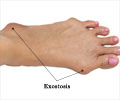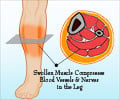- Opioid Use Disorder - (https://www.ncbi.nlm.nih.gov/books/NBK553166/ )
- FDA Drug Safety Communication: FDA evaluating the potential risks of using codeine cough-and-cold medicines in children - (https://www.fda.gov/drugs/drug-safety-and-availability/fda-drug-safety-communication-fda-evaluating-potential-risks-using-codeine-cough-and-cold-medicines )
- Codeine : Medlineplus - (https://medlineplus.gov/druginfo/meds/a682065.html )
- The Useage of Opioids and their Adverse Effects in Gastrointestinal Practice: A Review - (https://www.ncbi.nlm.nih.gov/pmc/articles/PMC3990131/ )
- Codeine - (https://www.ncbi.nlm.nih.gov/books/NBK526029/ )
Codeine Medication Information
Learn everything you need to know about Codeine-pronunciation, uses, dosage guidelines, indications, and when to take or avoid it.
Get up-to-date information on side effects, precautions, warnings, and proper storage to ensure safe usage.
Explore Codeine brand names commonly used in India and internationally, along with detailed pricing information. Consult your healthcare provider for tailored medical advice.
Generic Name : Codeine Pronunciation : KOE deen ICD Code : Y55.4 Therapeutic Classification : Expectorant and Cough ProductsBrand Names or Trade Names of Codeine
India :
International :
Fioricet With Codeine, Floricet With Codeine, Phrenilin With Caffeine And Codeine.
Why is Codeine Prescribed? (Indications)
This medication is a narcotic analgesic, prescribed for pain and cough. It is also used for diarrhea.When should Codeine not be taken? (Contraindications)
Hypersensitivity.What is the dosage of Codeine?
Adult: PO- Pain- 30-60 mg 4 hourly. Max: 240 mg/day.Cough suppressant- 15-30 mg 3-4 times/day. Max: 240 mg/day.
Acute diarrhea- 30 mg 3-4 times/day.
IV/IM/SC- Pain- 30-60 mg 4 hourly. Max: 240 mg/day.
How should Codeine be taken?
It comes as syrup to take by mouth, with or without food.What are the warnings and precautions for Codeine?
• Caution should be exercised in patients with history of head injury; brain tumor, epilepsy, mental illness; lung diseases, breathing problems, prostate enlargement, urinary problems, low blood pressure, Addison’s disease, allergies, thyroid, pancreatic, intestinal, gallbladder, liver or kidney disease and during pregnancy and lactation.• Reduce dose in elderly or debilitated patients.
• It may cause dizziness, lightheadedness, or drowsiness, do not drive a car or operate machinery while taking this medication, and get up slowly from bed.
• Avoid alcohol consumption while taking this medication.
What are the side effects of Codeine?
Most Common- Lightheadedness, dizziness, sedation, nausea, vomiting and sweating.Central Nervous System- Elevated mood, anxiety, weakness, headache, sleeplessness, agitation, disorientation and visual disturbances.
Gastrointestinal- Dry mouth, loss of appetite, constipation and biliary tract spasm.
Heart- Flushing of the face, slow heart rate, palpitation and fainting.
Genitourinary- Urinary retention or hesitancy, absence of urination, reduced sexual activity and/or potency.
Allergic- Itching, hives, rash, swelling and rarely bleeding.
What are the other precautions for Codeine?
Take proper diet, otherwise it may lead to constipation.What are the storage conditions for Codeine?
Oral: Store it at controlled room temperature (15-30°C).Schedule : H
Prescription drugs - Drugs to be sold only under the prescription of a Registered Medical Practitioner.
















